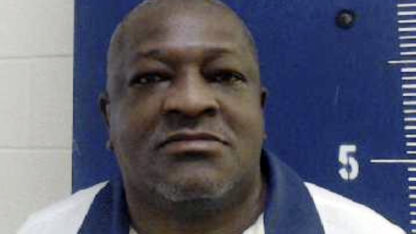Ahmaud Arbery's killers say race was not a factor in effort to overturn convictions

A panel of judges from the 11th U.S. Circuit Court of Appeals is weighing oral arguments from attorneys for three white men convicted of federal hate crimes and kidnapping in the shooting death of Ahmaud Arbery in 2020.
The 25-year-old Black man was chased and gunned down while jogging in a neighborhood in south Georgia by father and son Greg and Travis McMichael and their neighbor William “Roddie” Bryan.
The trio is currently serving life sentences in Georgia state prisons for murder.
At a court hearing in Atlanta on Wednesday, March 27, U.S. Department of Justice Attorney Brant Levine urged the judges to uphold their convictions.
Levine said the evidence supports the men’s guilty verdicts and that Arbery would still be alive today if he weren’t Black.
“They terrorized Ahmaud,” he said.
But, the McMichael’s and Bryan’s attorneys argued that Arbery was not targeted due to his race.
He was targeted because of his age, height, tattoos and level of threat to the community, says defense attorney A.J. Balbo.
“If this person had been a 60-year-old Black man, Greg McMichael would not have engaged him,” Balbo said. “The race was a non-contributing role in this matter.”
Travis McMichael’s attorney, Amy Lee Copeland, also claimed that federal law does not apply in the case because the streets where the shooting took place aren’t public.
Bryan’s attorney, Pete Theodocion, argued that using their pickup trucks to cut off Arbery’s escape from the neighborhood didn’t amount to attempted kidnapping.
Theodocion said the charge was improper because the men weren’t seeking ransom or some other benefit — an element required to prove the charge as a federal crime.
While it’s unclear when a decision will be made, Judge Britt Grant said the trial evidence of racist intent behind Arbery’s killing “seems pretty overwhelming to me.”
Civil rights attorney Mawuli Davis agreed at a rally for Arbery after the court hearing.
“I, quite honestly, was confused by the legal arguments of the defendants,” Davis said. “They were really a stretch to try to get this conviction overturned. Based on everything that I heard and the arguments that were made, I really believe that this conviction will be affirmed.”
Marcus Arbery Sr., who sat inside the courtroom alongside at least two dozen family members and their supports, said no one should have to fear for their life for going on a run.
“We got to make these people be accountable for what they’ve done to my baby!” Arbery Sr. said. “And as long as I’m alive, me and my family, we’re going to fight!”








